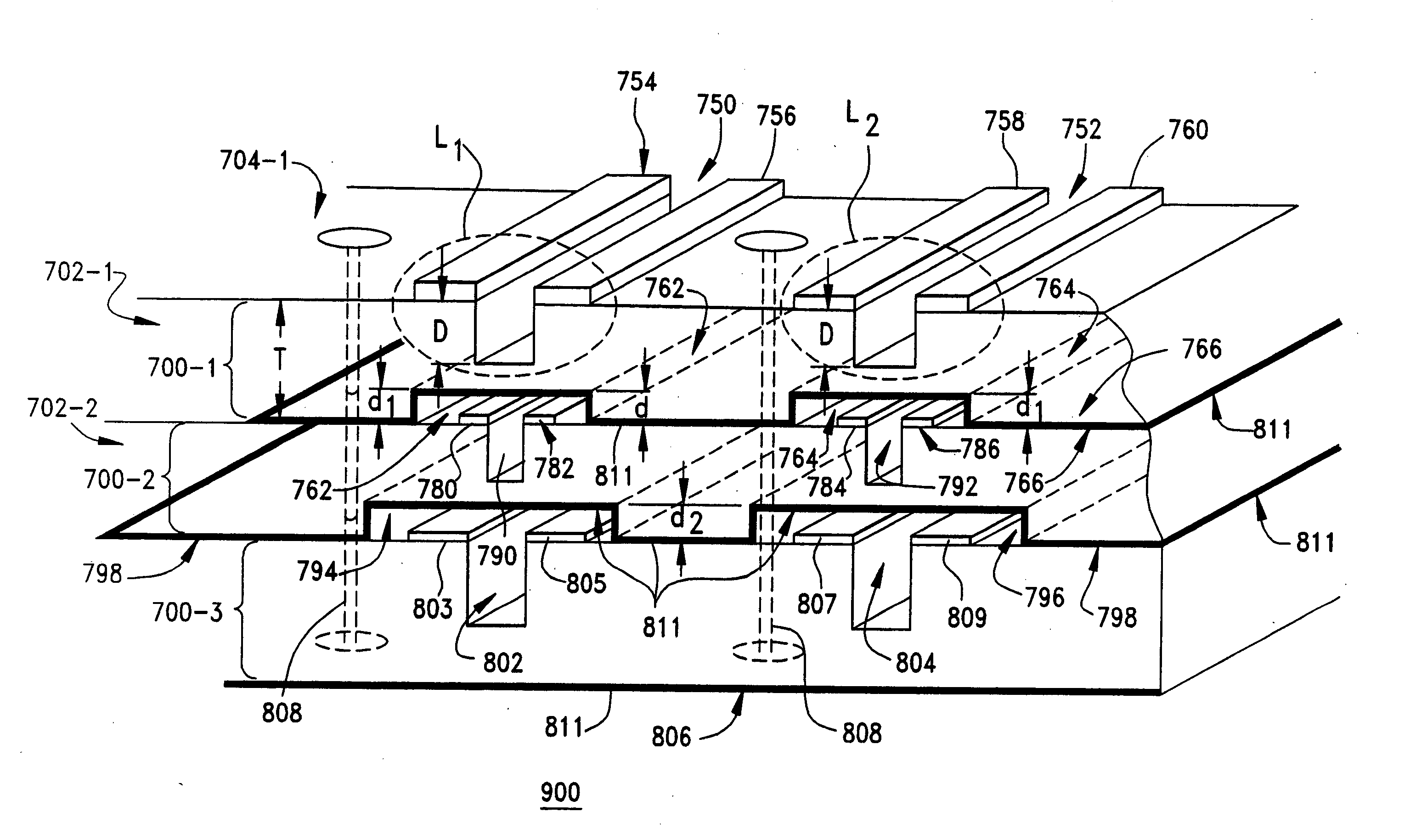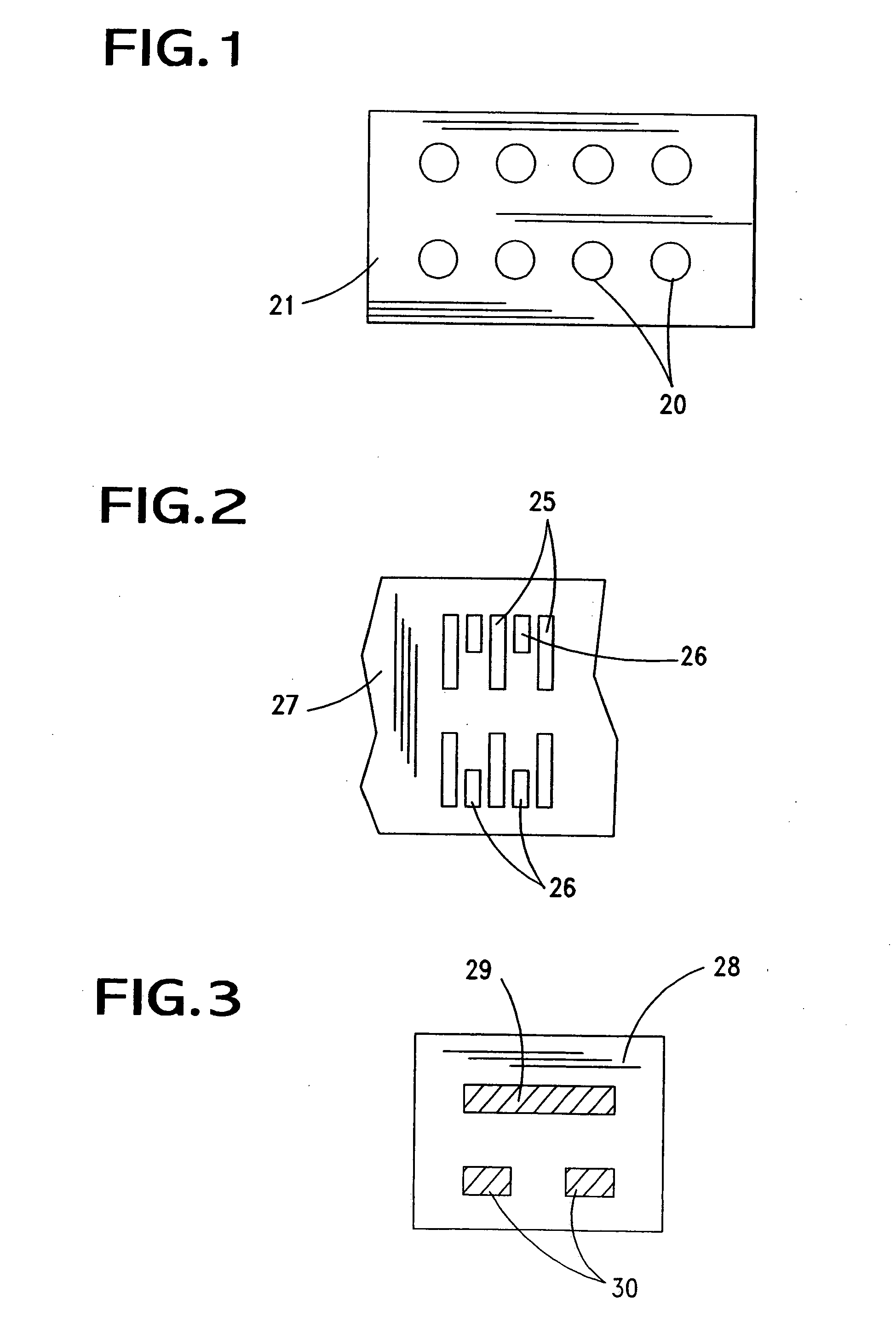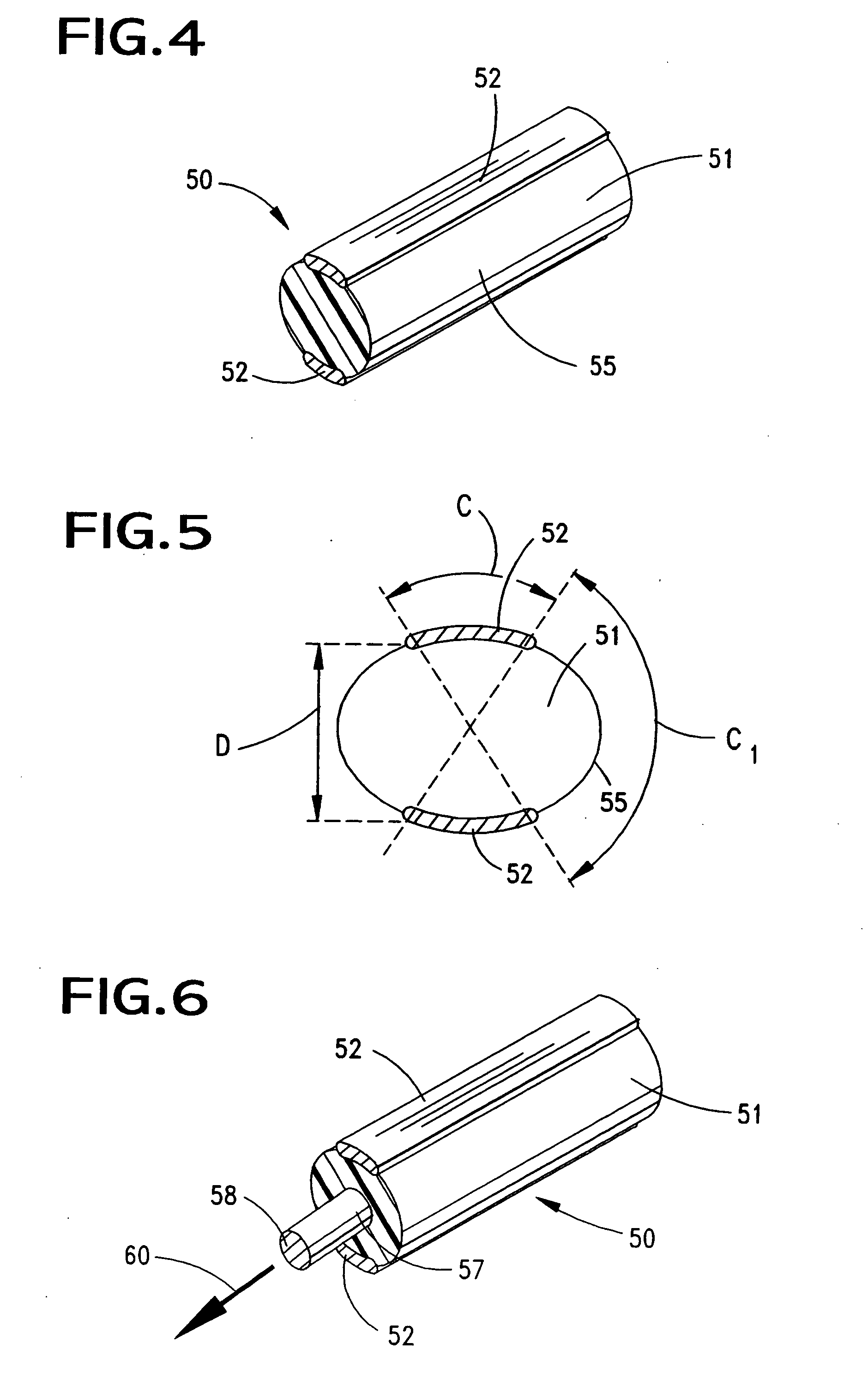Multi-channel waveguide structure
a waveguide and multi-channel technology, applied in waveguides, waveguide type devices, high frequency circuit adaptations, etc., can solve the problems of reducing bandwidth, difficult to achieve the desired uniformity within the system, and limited electronic performance primarily by structure, so as to achieve more predictable electrical performance and greater control of operational characteristics.
- Summary
- Abstract
- Description
- Claims
- Application Information
AI Technical Summary
Benefits of technology
Problems solved by technology
Method used
Image
Examples
Embodiment Construction
[0054]FIG. 4 illustrates a grouped element channel link 50 constructed in accordance with the principles of the present invention. It can be seen that the link 50 includes an elongated, dielectric body 51, preferably a cylindrical filament, that is similar to a length of fiber optic material. It differs therefrom in that the link 50 acts as a pre-engineered wave guide and a dedicated transmission media. In this regard, the body 51 is formed of a dedicated dielectric having a specific dielectric constant and a plurality of conductive elements 52 applied thereto. In FIGS. 4 and 5, the conductive elements 52 are illustrated as elongated extents, traces or strips, 52 of conductive material and, as such, they may be traditional copper or precious metal extents having a definite cross-section that may be molded or otherwise attached such as by adhesive or other means to the dielectric body of the link 50. They may also be formed on the exterior surface 55 of the body 51 such as by a suita...
PUM
 Login to View More
Login to View More Abstract
Description
Claims
Application Information
 Login to View More
Login to View More - R&D
- Intellectual Property
- Life Sciences
- Materials
- Tech Scout
- Unparalleled Data Quality
- Higher Quality Content
- 60% Fewer Hallucinations
Browse by: Latest US Patents, China's latest patents, Technical Efficacy Thesaurus, Application Domain, Technology Topic, Popular Technical Reports.
© 2025 PatSnap. All rights reserved.Legal|Privacy policy|Modern Slavery Act Transparency Statement|Sitemap|About US| Contact US: help@patsnap.com



